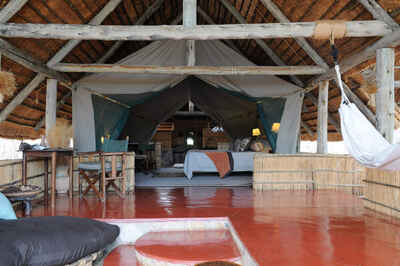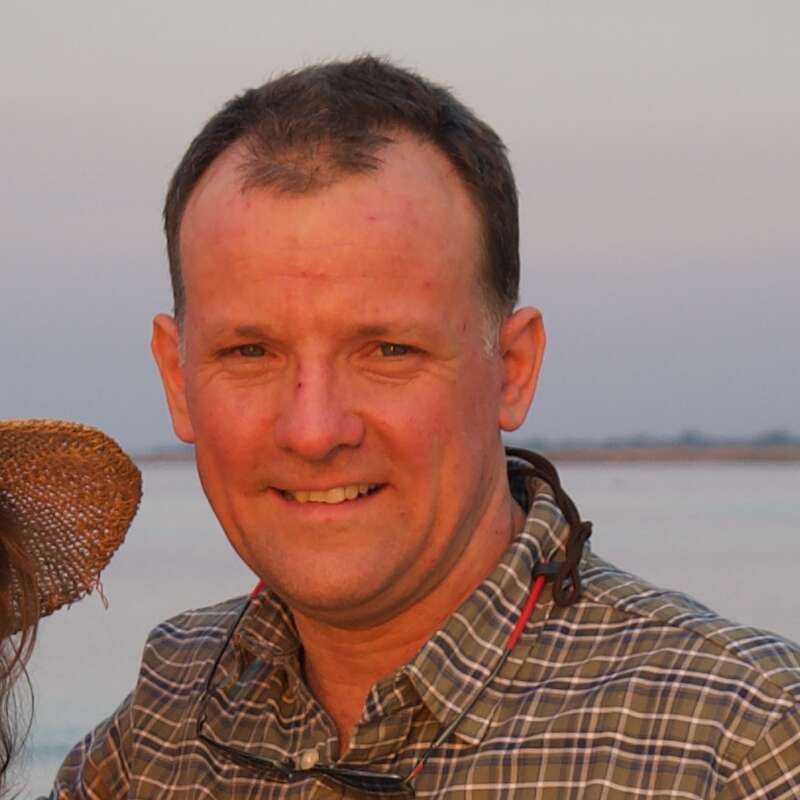About Mwagusi Safari Camp
Set on the banks of Tanzania’s seasonal Mwagusi River, Mwagusi Camp is relatively smart and comfortable, ...
... yet rustic in feel. It has been operating in Ruaha National Park since the 1980s. As a result, the game, which is drawn to the river and surrounding area, is well-habituated.
We can see why Mwagusi continues to be popular. As a quirky, owner-run camp it feels both homely and welcoming, and it’s certainly the antithesis of a lodge designed by committee. Mwagusi’s service is good and the guiding very competent, resulting in a fantastic game viewing experience. While it’s not the cheapest camp in the park, we think it’s well worth it.
Our view
We can see why Mwagusi continues to be popular. As a quirky, owner-run camp it feels both homely and welcoming, and it’s certainly the antithesis of a lodge designed by committee. Mwagusi’s service is good and the guiding very competent, resulting in a fantastic game viewing experience. While it’s not the cheapest camp in the park, we think it’s well worth it.
Accommodation
13 bandas
Children
All ages welcome.
Open
25 May to 31 Mar
Activities

4WD Safari

Birdwatching

Guided walking safari

Hot air ballooning

Private activities
Traveller reviews of Mwagusi Safari Camp
117 real, un-edited reviews from Expert Africa's travellers.
Arrived 27 Oct 2024, 5 nights
"Mwagusi Safari Camp review"
Overall rating: Excellent
Arrived 4 Aug 2024, 4 nights
"Mwagusi Safari Camp review"
Overall rating: Good
Arrived 19 Sep 2022, 3 nights
"Mwagusi Safari Camp review"
Overall rating: Excellent
Arrived 30 Jul 2021, 5 nights
"Mwagusi Safari Camp review"
Overall rating: Excellent
Arrived 5 Oct 2019, 2 nights
"Fantastic location on the Mwagusi river"
Overall rating: Excellent
Arrived 24 Sep 2019, 3 nights
"Beautiful camp, excellent game drives"
Overall rating: Excellent
Arrived 15 Jun 2019, 3 nights
"Brilliant camp, accommodation was superb"
Overall rating: Excellent
Arrived 11 Feb 2019, 5 nights
"Mwagusi Safari Camp review"
Overall rating: Excellent
Arrived 30 Oct 2018, 4 nights
"Mwagusi Safari Camp Review"
Overall rating: Excellent
Arrived 20 Oct 2018, 4 nights
"Excellent location in the heart of the bush"
Overall rating: Excellent
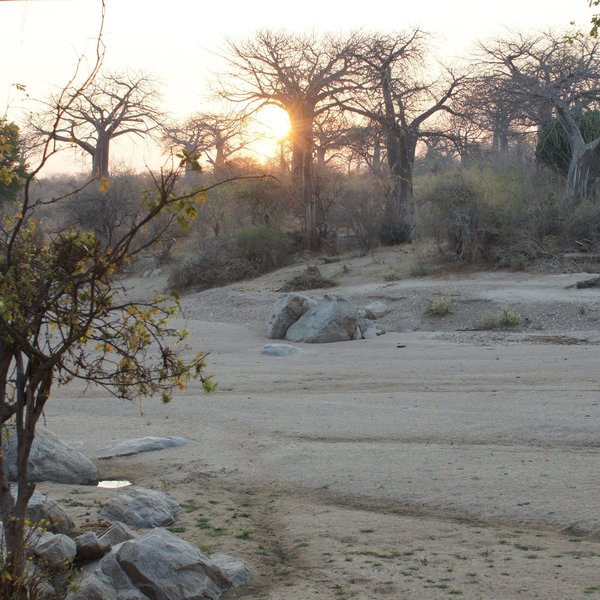
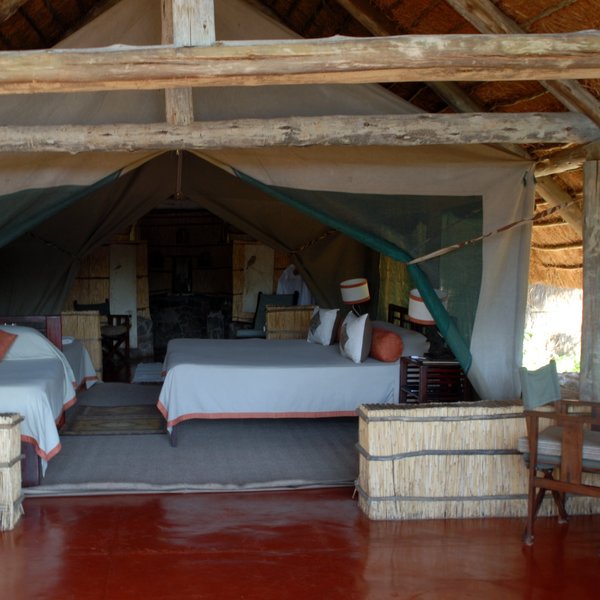
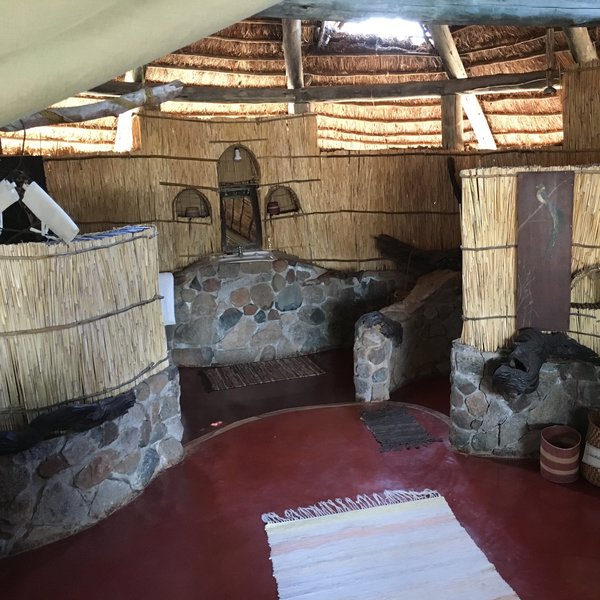
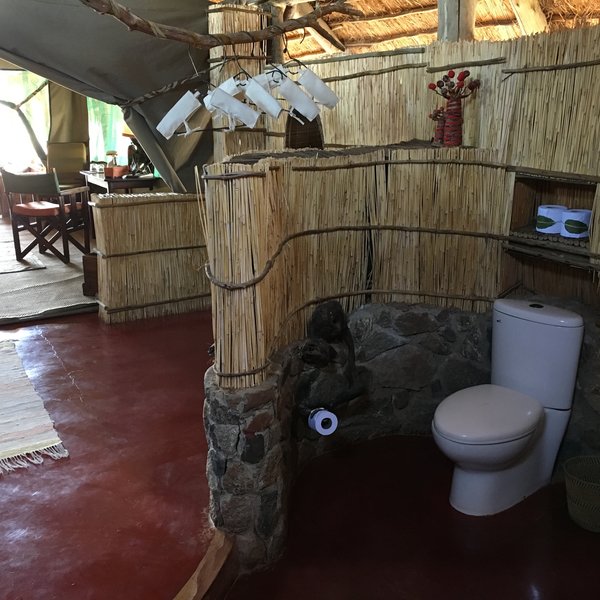
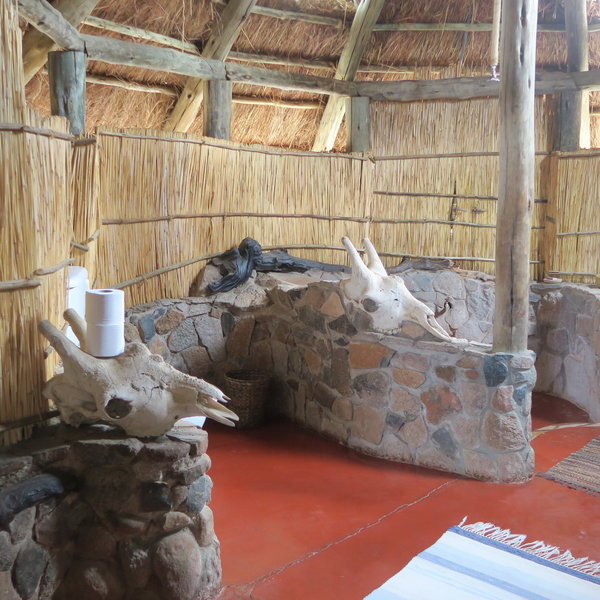
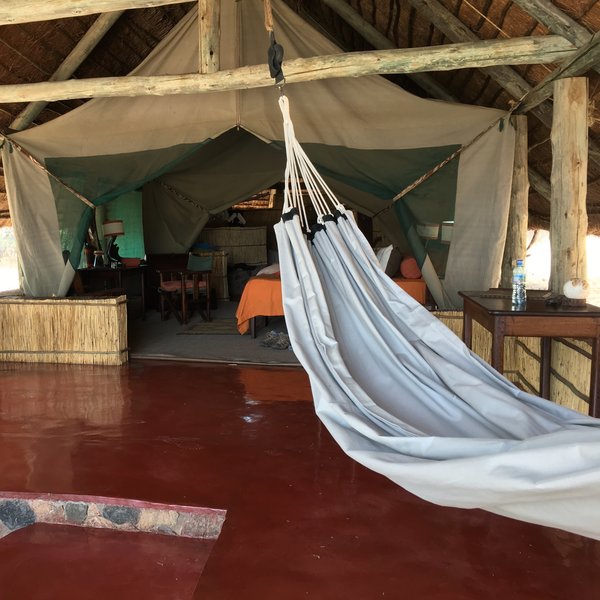
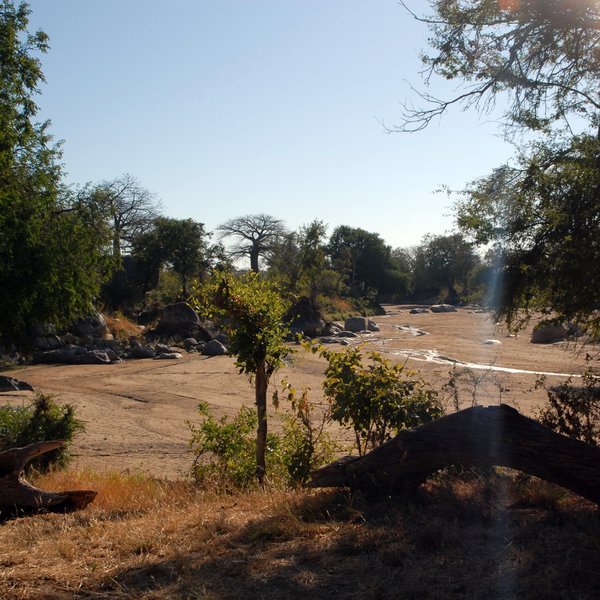
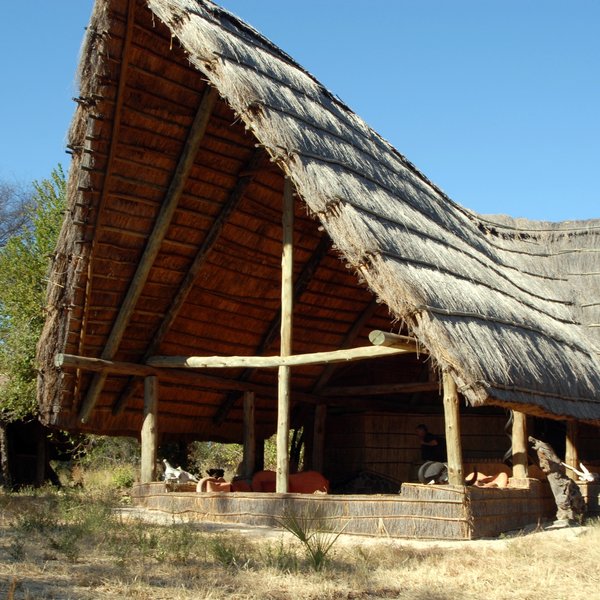
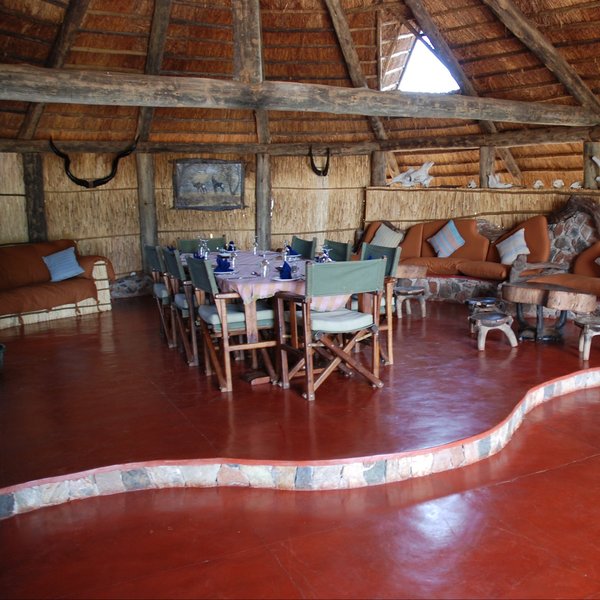
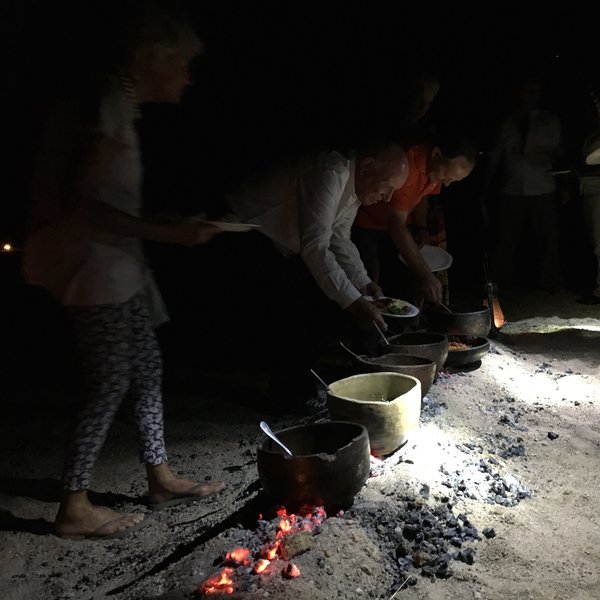
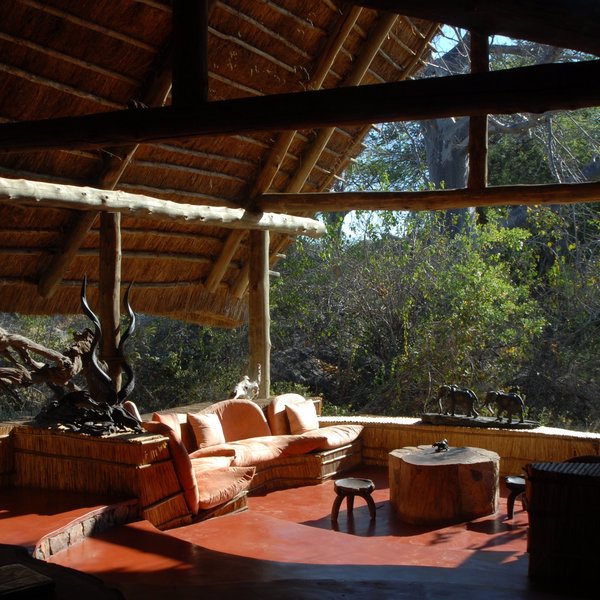
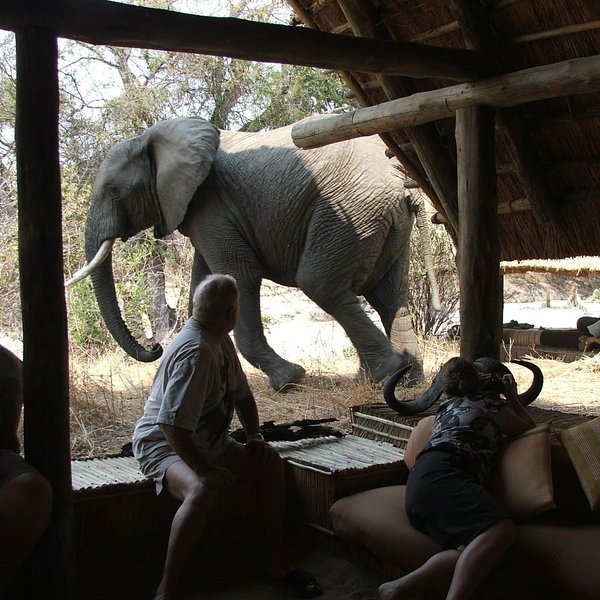
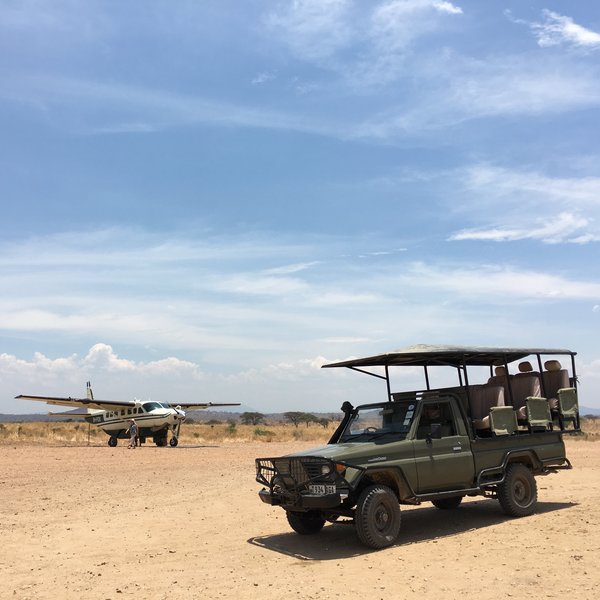
Expert Africa's gallery
When we travel we take lots of photos ourselves to give you a real and un-edited view of the safaris. See our 66 pictures and 1 videos of Mwagusi Safari Camp to get the candid view.
View galleryMwagusi Safari Camp: Our full report
Set on the banks of Tanzania’s seasonal Mwagusi River, Mwagusi Camp is relatively smart and comfortable, ...
... yet rustic in feel. It has been operating in Ruaha National Park since the 1980s. As a result, the game, which is drawn to the river and surrounding area, is well-habituated.
The camp's owner and occasional host is the charismatic Chris Fox, who was born in Tanzania and is passionate about Africa, the park and its wildlife, and is strongly committed to running a sustainable operation.
Mwagusi’s rooms and central area all look out over the river. Although it is mostly dry from July through to November, natural pools and holes dug by elephants to reach the water table attract game throughout the year.
The 13 rooms, known as bandas, are spacious tented rooms under a larger reed-and-thatch roof. This extends at the front to incorporate an open-sided veranda, unique in design, depending on each room’s location. The verandas share several features: all look out over the river and offer a small lounge area with sofas cleverly built around the granite boulders that are scattered along the river bank. Some also have a hammock.
Inside the tents are large, comfortable beds, a writing desk and a bedside light. Bright throws and makuti mats on the floors bring colour and character. None of the features match perfectly or blend into a seamless uniform style – but this adds to the under-designed charm of Mwagusi. There is electricity for lighting, but no fans or air-conditioning, though the thatched roof and flow-through of air helps keep them fairly cool. There are three pin UK style plug sockets in the tents where electricals can be charged.
Between each room and its spacious en-suite bathroom is a large vestibule area, with space for hanging and folding clothes. The bathroom extends beyond, built on to the back of each room. These are thoughtfully put together, quite unlike any others we know of in Africa, with some adorned with animal bones, which are maybe not to everyone's taste. The walls are made of rustic stone, cut to about waist height and topped with thick reeds. Lovely touches include towel rails made of reclaimed driftwood, cleverly built into the stone walls. There is a slight dividing wall between the flush toilet and the hot shower.
Sandy paths lead from the well-spaced rooms to the main dining and lounge area, which matches the style of the rooms with high thatched roofs, waist-high reed walls, polished red stone floors and bits of driftwood built into the walls. Animal skulls and other items collected from the bush are dotted around, adding a rustic feel.
Adjacent to the lounge is a further area for relaxing and a small library, with a table and chairs, wildlife books, and comfortable, built-in sofas covered in brightly coloured fabrics.
Activities at Mwagusi focus mainly on game drives, heading out early in the morning, typically pausing for breakfast out in the bush, and then again in the late afternoon once the heat of the day has passed. There is the possibility to request an all-day trip that allows you to explore deep into the park. However, do bear in mind that most wildlife is inactive around midday, and we would only suggest this activity during the cooler winter months of July and August.
If you want to experience the bush on foot, short informal nature walks around the outskirts of the camp are run in the early morning, and can often tally up a good number of different species. More serious three-to-four-hour walks through the bush or along the river, accompanied by a camp guide and park rangers, are possible and provide a chance of encountering large wildlife on foot. These longer walks must be arranged in advance, and are an extra cost, payable in camp.
Unlike some other countries, there are no official guiding exams or qualifications in Tanzania. To offer a consistent quality guiding in the camp, and as part of a wider sustainability commitment in the area, Chris Fox operates a school to provide training for all staff (not just the guides) in natural history, guiding, waiting, plumbing, electrics and mechanics. If you visit Mwagusi two years apart, there’s a good chance that your waiter from your first trip will be your guide on the second!
Activities
4WD Safari
Birdwatching
Guided walking safari
Hot air ballooning
Private activities
Families & children
- Attitude towards children
- Mwagusi welcomes children of all ages.
- Property’s age restrictions
- There are no age restrictions to stay at Mwagusi, but no children under 16 are allowed on guided walks.
- Special activities & services
- No special equipment or services offered.
- Generally recommended for children
- Expert Africa does not recommend Mwagusi for under 10s.
- Notes
- Although Mwagusi welcomes children of all ages, we would recommend the camp only for well-behaved, mature children aged over 10. Because of the dangerous game (on our last visit elephants often wandered through the camp), children need constant supervision by their parents.
Food & drink
- Usual board basis
- Full Board & Activities
- Food quality
- Mwagusi's two head chefs, Meru and Mohammed, have both been working in the kitchens and producing tasty food for a number of years.
Breakfast times are flexible, although the usual routine is to have a couple of small biscuits delivered to your room with your wake-up tea or coffee, and a larger breakfast out in the bush on your morning activity. This can include fresh fruit, eggs, cereal and Mwagusi’s homemade cinnamon rolls. If you are on a later game drive, or connecting onto a flight, breakfast is usually served in camp.
Lunch is set out buffet-style, with a good variety of light salads and more filling options. It is served in the camp at around 12.15-1.00pm, when guests return from their morning activities. On our last visit in July 2017, we had a selection of rice, ginger beef, vegetable pasties, coleslaw, green beans and a green salad.
A slightly more formal dinner, following pre-dinner drinks around the campfire, is often served outside and sometimes in the riverbed. Everyone sits around one large table, with the meal either served to you or presented as a buffet, depending on the location. Private dining can also be arranged on request.
On our last visit, we enjoyed stuffed tomatoes, followed by a main buffet of stuffed pork, mashed potatoes, Moroccan chickpea stew, braised carrots and broccoli. Dessert was a chocolate and banana roulade. The food at Mwagusi was tasty, imaginative and consistently very good, and the team have no problem catering for special dietary requirements. - Dining style
- Group Meals
- Dining locations
- Indoor and Outdoor Dining
- Further dining info, including room service
- No
- Drinks included
- Apart from complimentary filtered water in the rooms and soda on game drives, no drinks are included.
Beers costs around US$4 and soft drinks around US$2. The camp also has an impressive wine list, given its location, with a glass costing around US$5 and bottles ranging up to US$30.
Our travellers’ wildlife sightings from Mwagusi Safari Camp
Since mid-2018, many of our travellers who stayed at Mwagusi Safari Camp have kindly recorded their wildlife sightings and shared them with us. The results are below. Click an animal to see more, and here to see more on our methodology.

100% success

100% success

100% success

91% success

91% success

90% success

90% success

73% success

70% success

33% success

25% success

20% success

0% success

0% success

0% success

0% success
Getting there
- Location
- Ruaha National Park, Tanzania
- Ideal length of stay
- We recommend spending at least three to four nights at Mwagusi to explore Ruaha National Park.
- Directions
- Ruaha is a two-and-a-half-hour flight from Dar es Salaam, then a further 30 minute drive to the camp.
- Accessible by
- Fly-and-Transfer
Special interests
- Family safaris
- Overlooking a seasonal river in Ruaha, Mwagusi is a quirky, owner-run camp. Come for 4WD drives and brilliant service on your family safari holidays in Tanzania! We recommend it for families with mature children aged 10+.
- See ideas for Family safaris in Tanzania
- Solo safaris
- Ruaha's owner-run Mwagusi Safari Camp is a great choice for solo travellers visiting Tanzania. Plenty of water and open plains mean top wildlife safaris, whilst shared activities, communal meals and a sociable lounge and dining area make it great for single travellers.
- See ideas for Solo safaris in Tanzania
- Birdwatching safaris
- Ruaha's position at the centre of Tanzania gives it an interesting cross section of birds – and makes it a fascinating park for birdwatching in Tanzania. Early-morning bird-walks are a very popular activity at the camp to catch the dawn chorus with a guide before breakfast.
- See ideas for Birdwatching safaris in Tanzania
- Walking safaris
- Highly trained guides from Mwagusi Safari Camp will take you to discover the lesser-known flora and fauna of the bush; learn how to recognise different droppings, how to identify bird calls and the many medicinal uses of plants.
- See ideas for Walking safaris in Tanzania
- Wildlife safaris
- Ruaha has all the usual big game – and the team at Mwagusi take a very enthusiastic approach to finding it for you. There's a tremendous depth of experience at this small, owner-run camp, making it a great choice for wildlife safaris in Tanzania if you're passionate about game-viewing!
- See ideas for Wildlife safaris in Tanzania
Communications
- Power supply notes
- Mwagusi has a back-up generator. There are no sockets in the rooms, so camera batteries and the like are charged in the office (cameras and phones take precedence over iPad and computer charging). The camp recommends that guests bring power-banks with them.
- Communications
- Airtel and Vodacom have good cellphone reception at Mwagusi. There is no WiFi, but the camp does have basic text-only email, which guests could use in cases of emergency.
- TV & radio
- There are no TVs at Mwagusi
- Water supply
- Borehole
- Water supply notes
- All water is boiled and filtered for drinking, however bottled water is also supplied.
Health & safety
- Malarial protection recommended
- Yes
- Medical care
- There is first-aid equipment at the camp, and the guides have basic first-aid training, with the senior guide/guide instructor fully trained in first aid. For serious cases, the camp has links with the flying doctor service.
- Dangerous animals
- High Risk
- Security measures
- Guests are always escorted to and from their tents at night. Valuables should be stored with management if required.
- Fire safety
- Extinguishers are in each banda, and the riverbed acts as a natural fire-break. Fire safety inspections are carried out every three months.
Useful info
- Disabled access
- Not Possible
- Laundry facilities
- Laundry is included. It takes 24 hours, all items are hand washed and most are coal ironed, however there is a separate laundry bag for delicate items. Please note that as at many other camps in Africa, the team here will not wash women's underwear for cultural reasons. Washing powder is provided in the bathrooms for these items.
- Money
- Mwagusi is unable to offer any form of currency exchange. There is a safe in the office.
- Accepted payment on location
- For payments of drinks and other extras including bush walks, Mwagusi can only accept cash, preferably in US dollars or Tanzanian shillings. No credit cards are accepted.
Plan and book your trip with Expert Africa
All of our trips are tailor-made, so we'll always adapt them to suit you. Talk to an Expert and let us plan and arrange your perfect trip.

Talk to an Expert
Call or email us now! We’ll match you with the Specialist in our team who is best suited to help you. Then together we can start planning your trip.

Set up your itinerary
Based on our experience and your ideas, your specialist will create a detailed, costed itinerary. We’ll refine it together, until we have a trip that you’re perfectly happy with.

Prepare for your trip
The same Specialist will make the seamless arrangements for your trip, send you detailed travel documents, and be available to answer any questions before you depart.

Travel with peace of mind
After you set off, you’ll be cared for by our partners in Africa, most of whom have worked with Expert Africa for decades. And if you ever need us urgently, we’re available 24/7.

When you return
We love to learn about your trip, and so will always be grateful if you’ve the time to give feedback to your Specialist when you return.
Mwagusi Safari Camp's location
Look closer at the environment and surroundings of Mwagusi Safari Camp.
Excursions from Mwagusi Safari Camp
Optional extra day-trips and excursions possible whilst you're staying at Mwagusi Safari Camp. Talk to us: these are usually best arranged before you go.
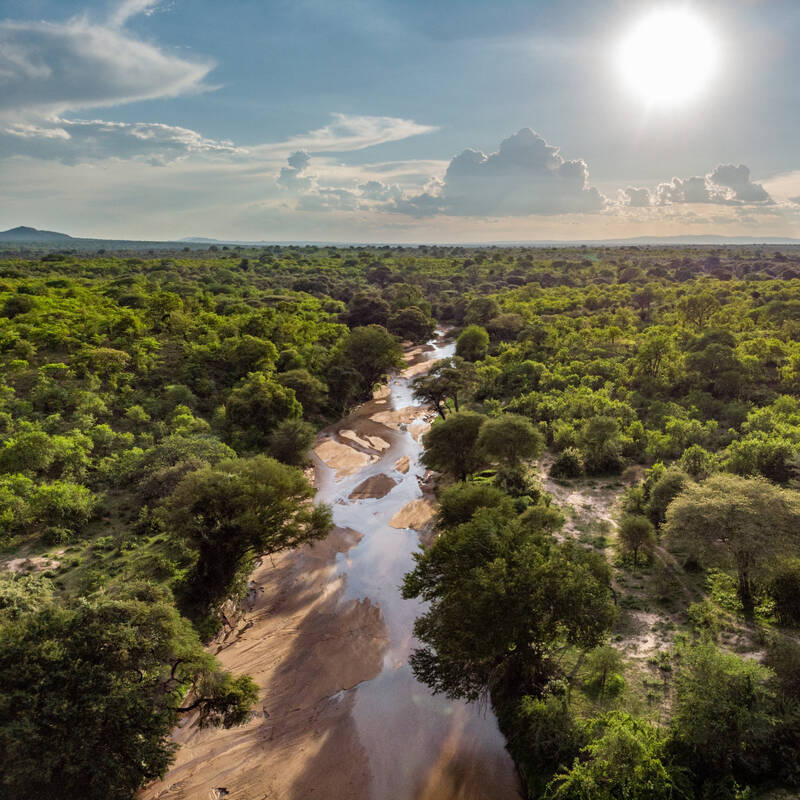
Balloon Safari over Ruaha
Three hours - one hour flight
Varied and scenically stunning, Ruaha National Park features rolling hills, woodlands, open plains and two wide meandering rivers: the Ruaha and the Mwagusi. What better way to view it than from the air, at sunrise? A balloon safari offers just this, the landscape unfolding below your basket as you float almost silently above.
More about Ballooning in RuahaOther lodges in Ruaha National Park
Alternative places to stay in this same area.
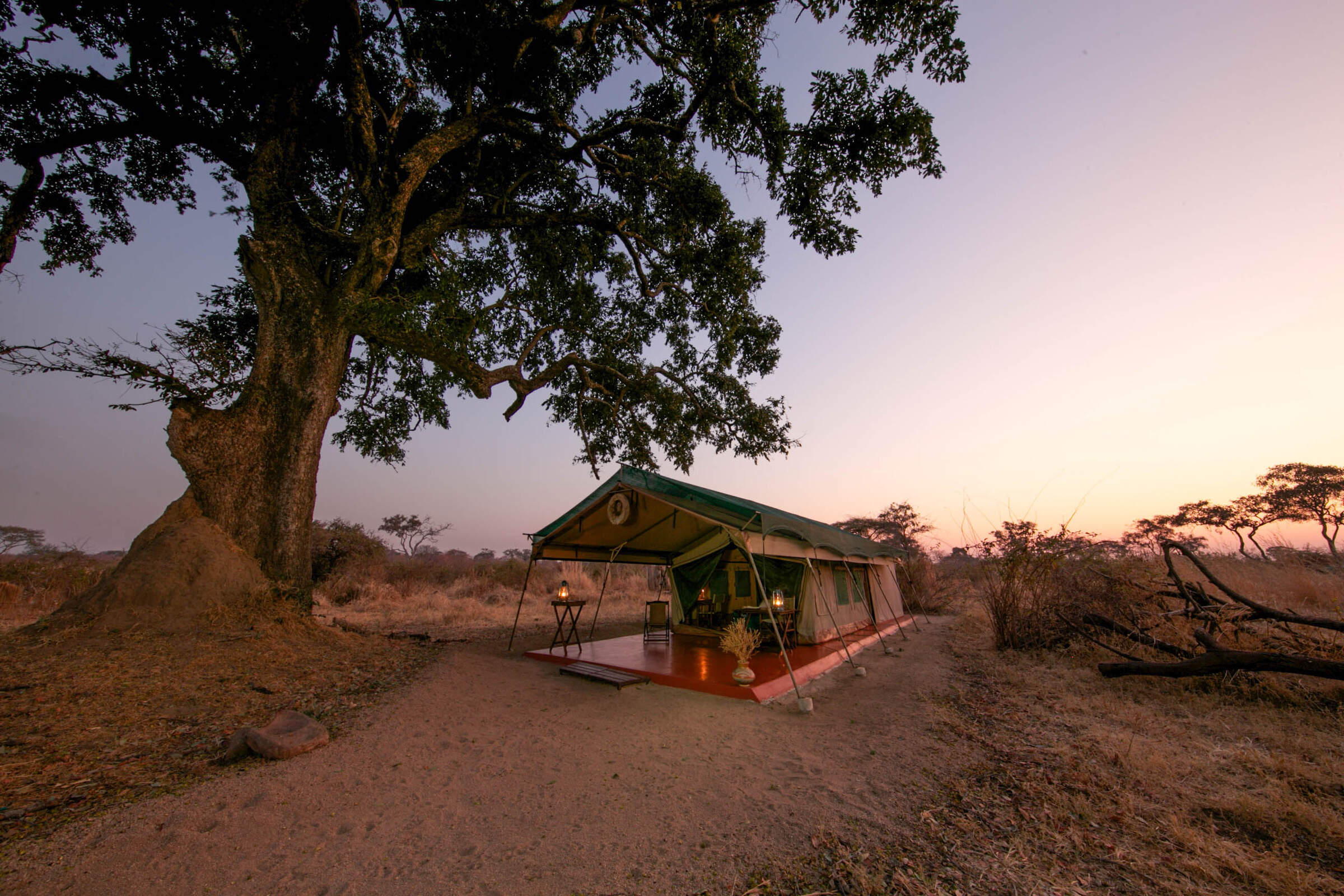
Mdonya Old River Camp
Designed with simplicity in mind, Mdonya River Camp focuses on a great wilderness experience rather than creature comforts.
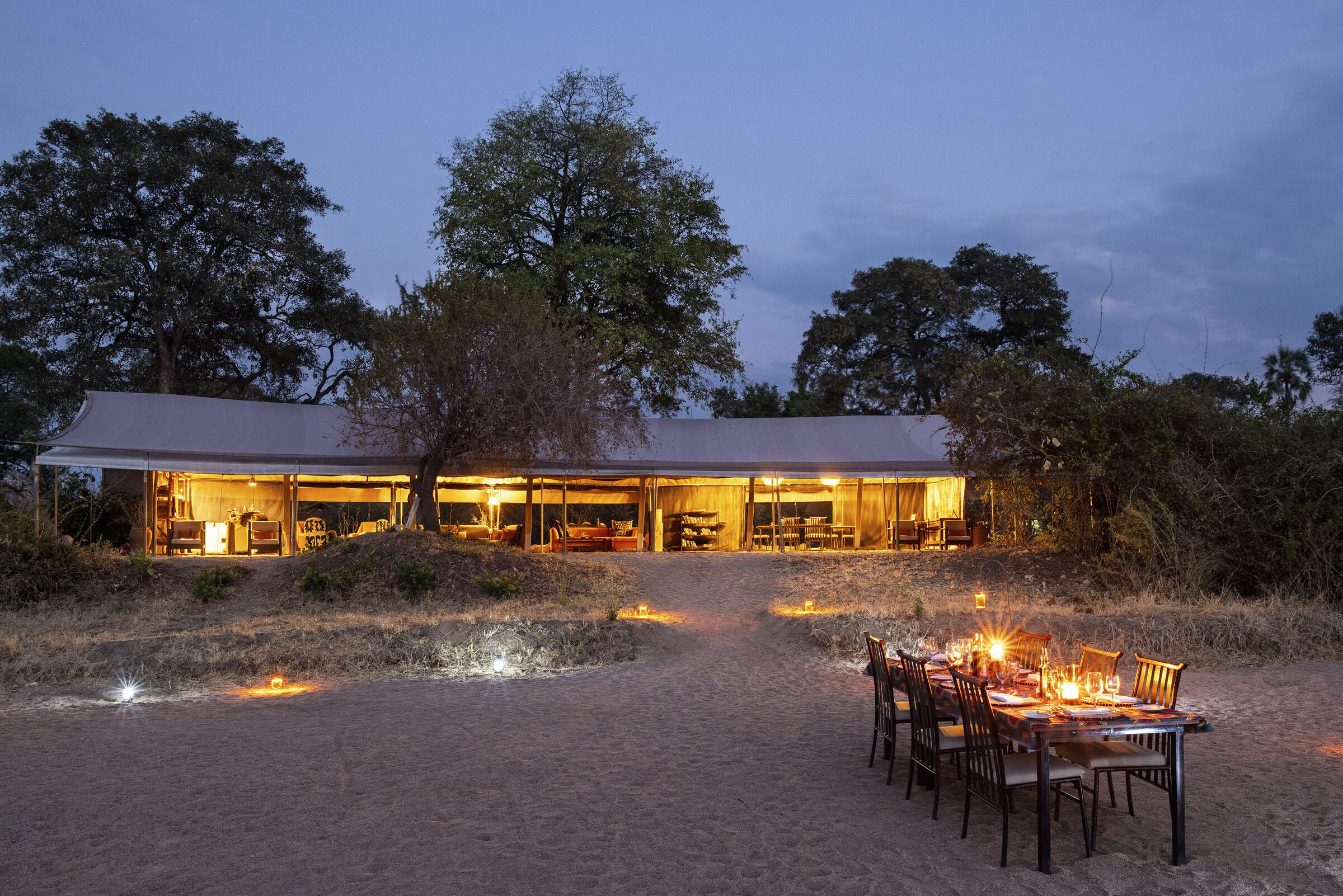
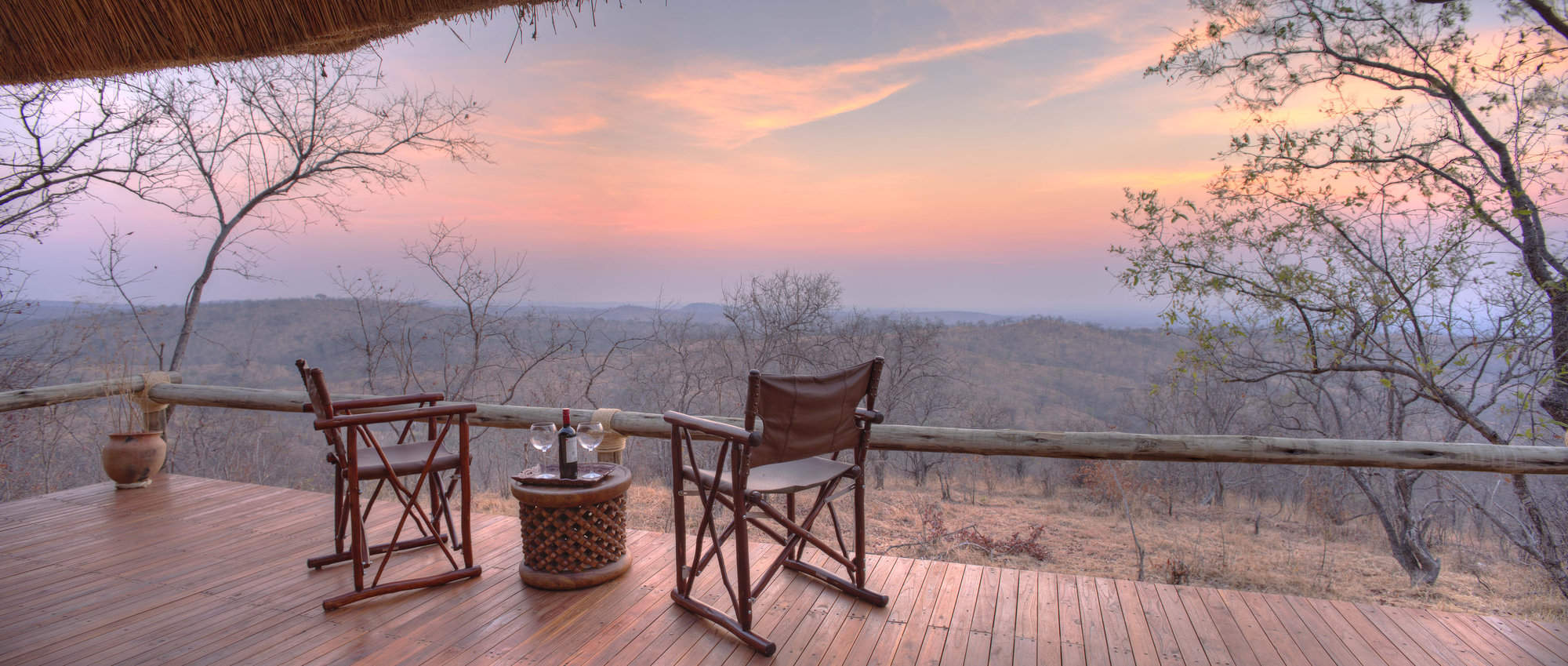
Ikuka Safari Camp
Upmarket and stylish, Ikuka Safari Camp is set high on an escarpment with spectacular panoramic views over Ruaha National Park.
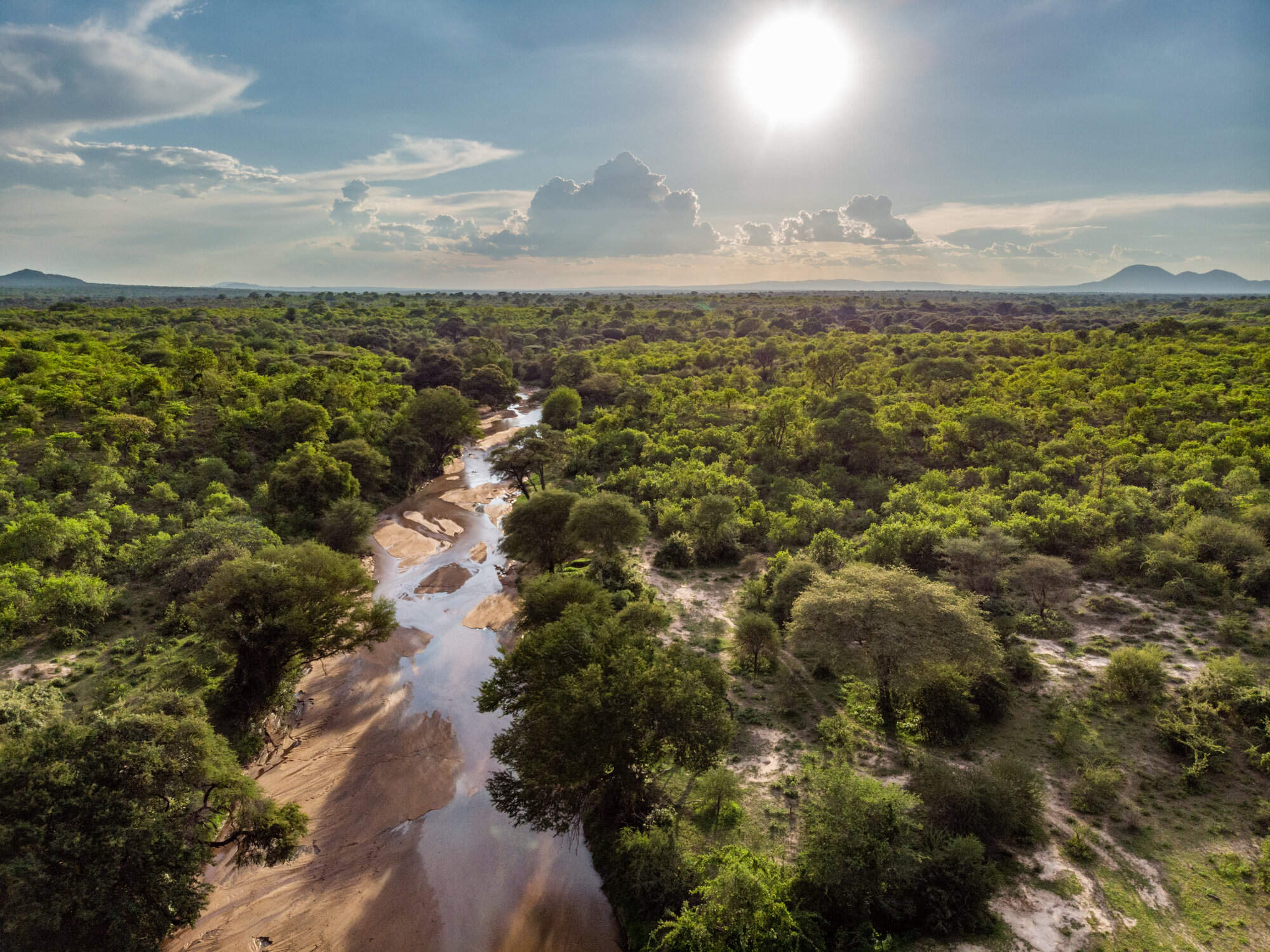
Jongomero Camp
A stylish and luxurious camp in a remote part of Ruaha, Jongomero offers excellent guiding and service in a remote, wilderness area.
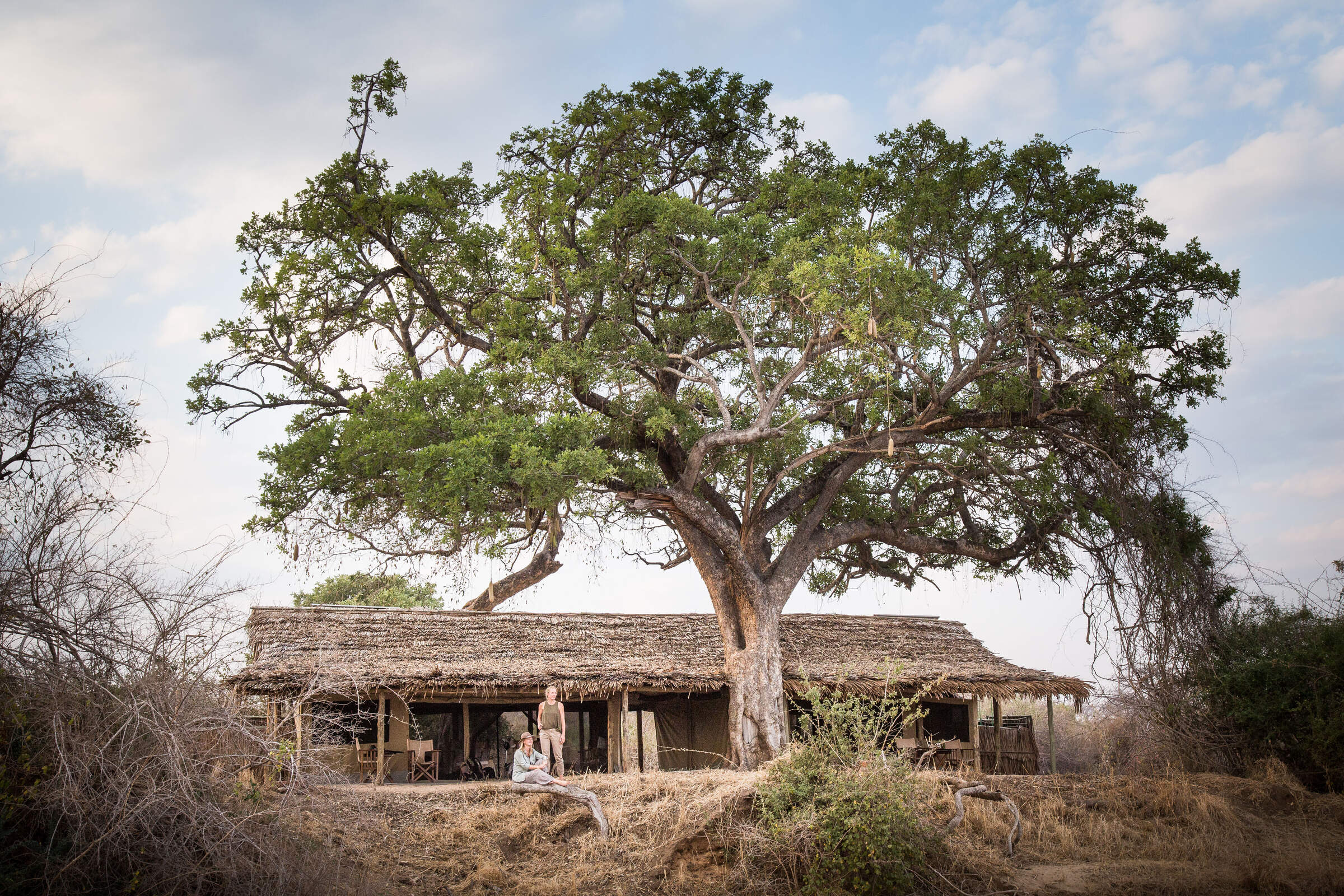
Kigelia Camp
Kigelia is a stylish tented camp, set amid a grove of sausage trees, and combining a simple set-up with comforts and luxury.
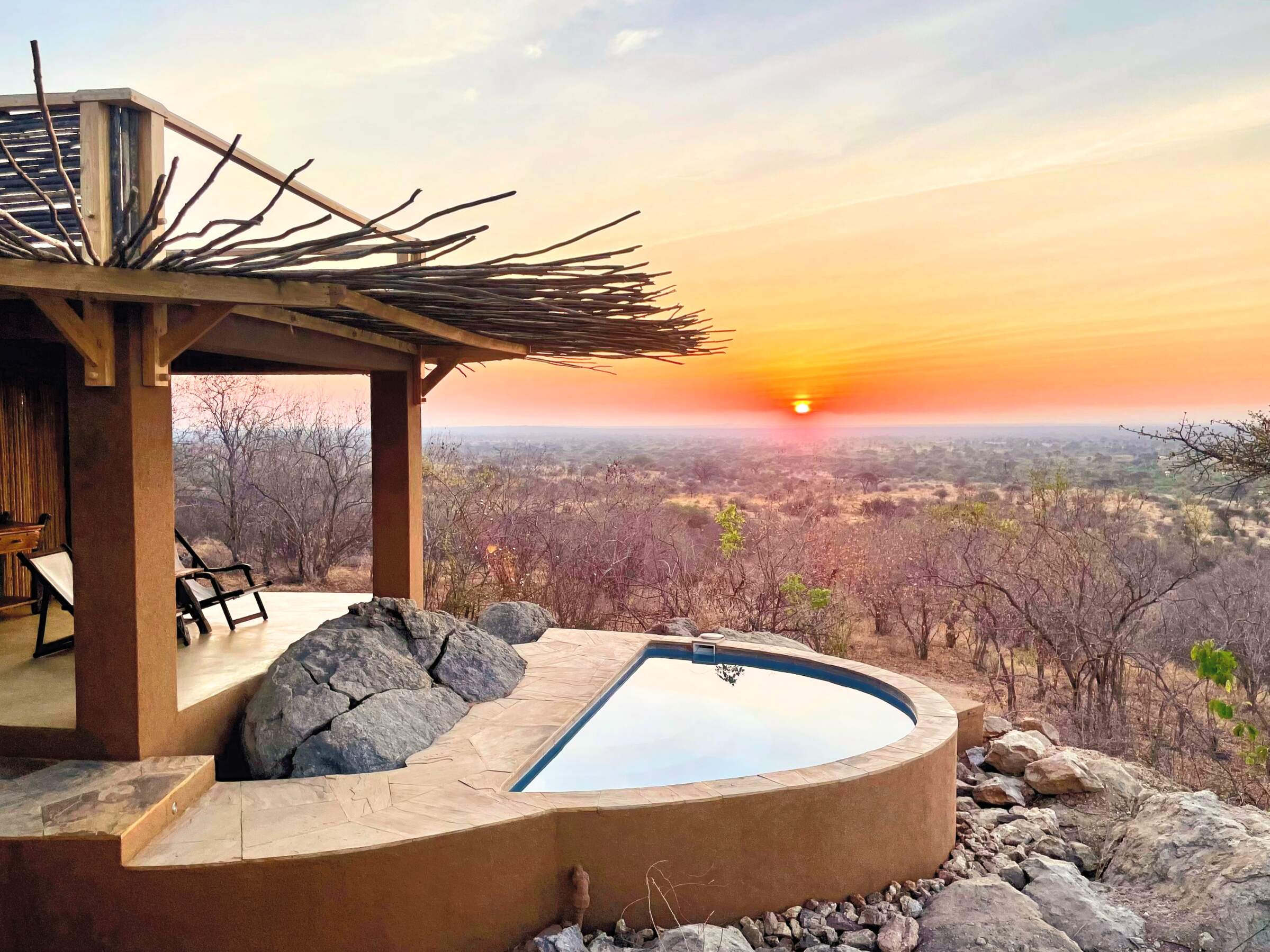
Kichaka Zumbua
Kichaka Zumbua is a small, luxurious camp offering on outstanding walking safaris in a remote area of Ruaha.
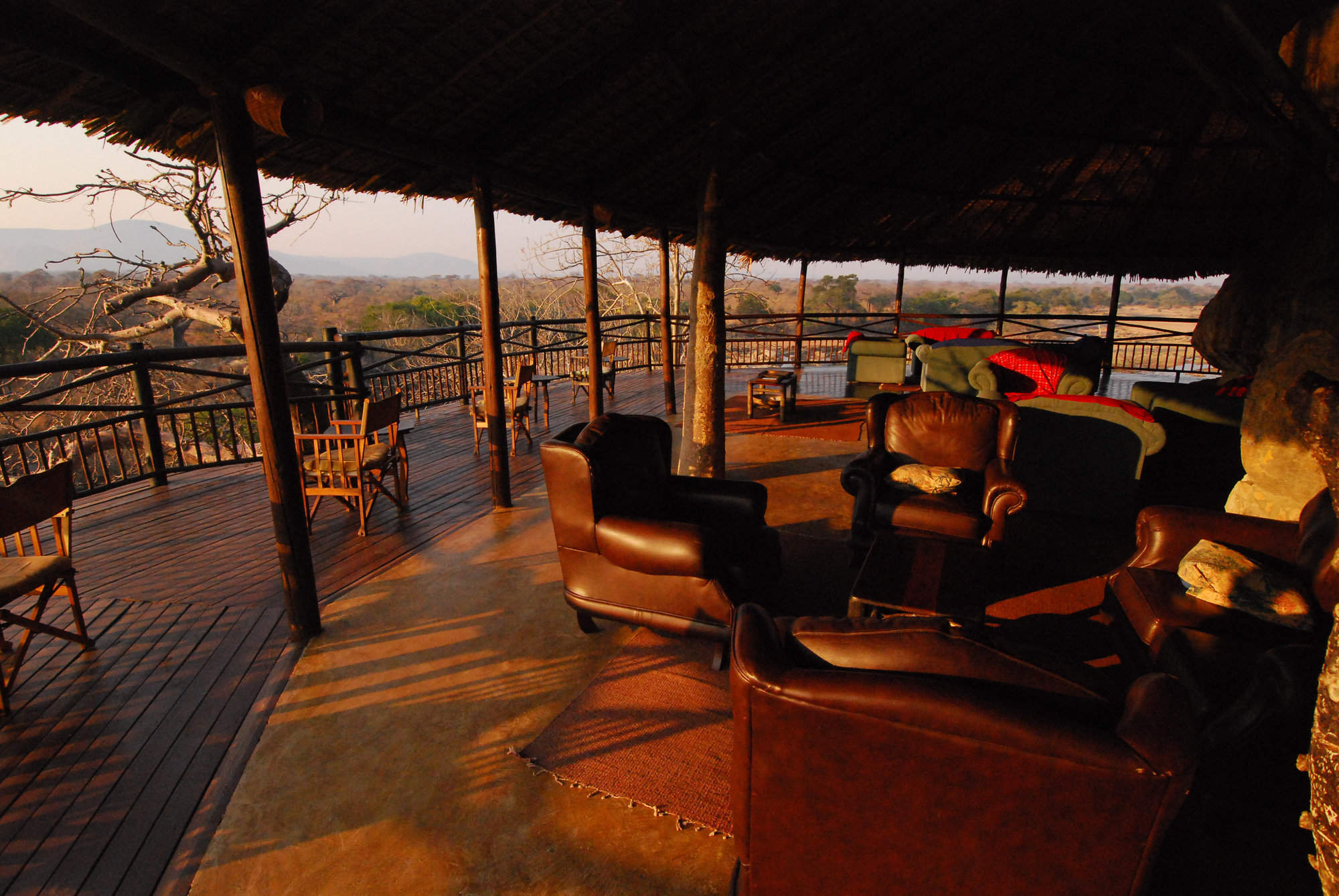
Ruaha River Lodge
In a lovely location beside a rocky river, the unpretentious Ruaha River Lodge is the largest and most economical camp in Ruaha National Park.
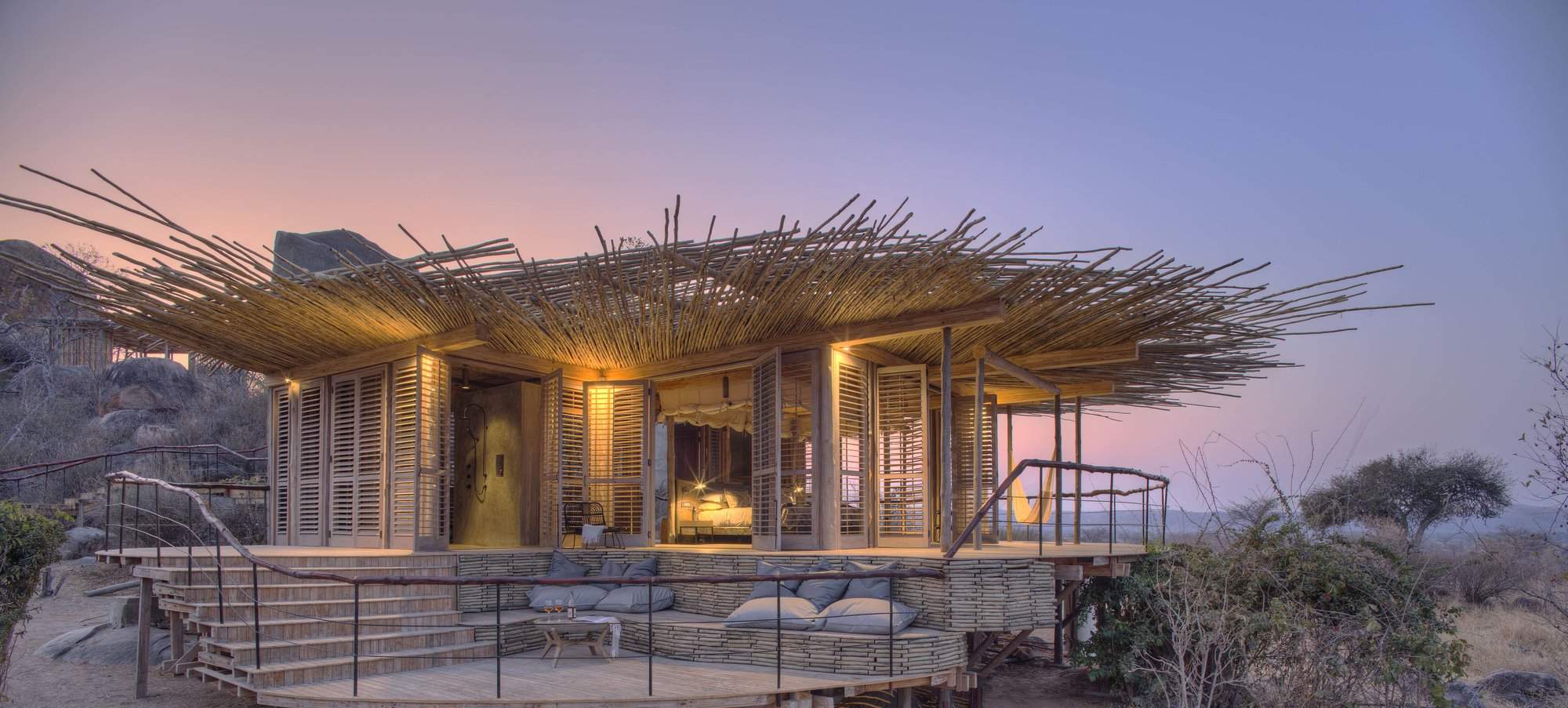
Jabali Ridge
One of Ruaha's most luxurious camps, Jabali Ridge nestles among kopjes and baobabs, with beautiful views of the surrounding area.
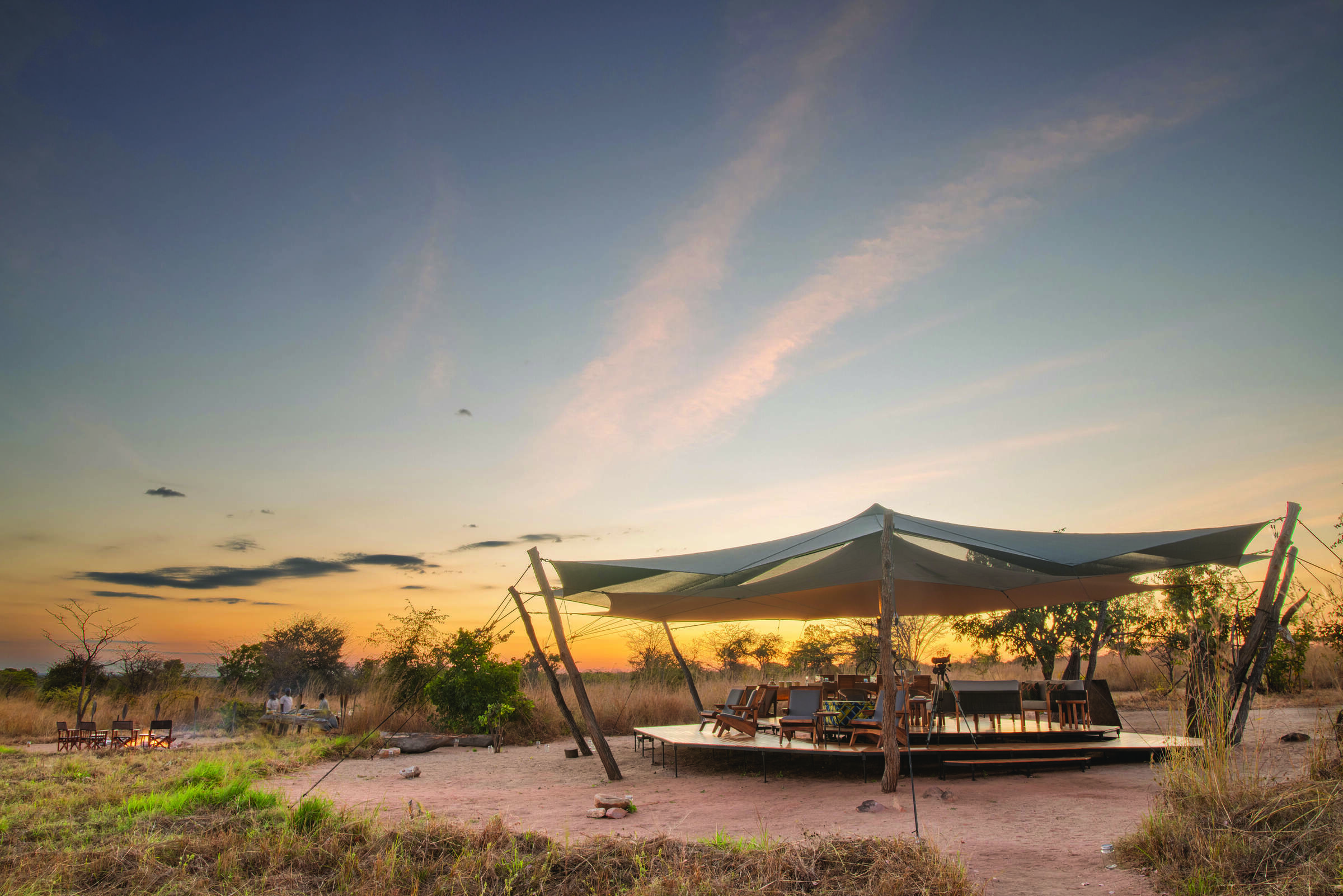
Usangu Expedition Camp
Usangu Expedition Camp is a seasonal camp in the Usangu Wetlands – a remote and enchanting part of Ruaha National Park.
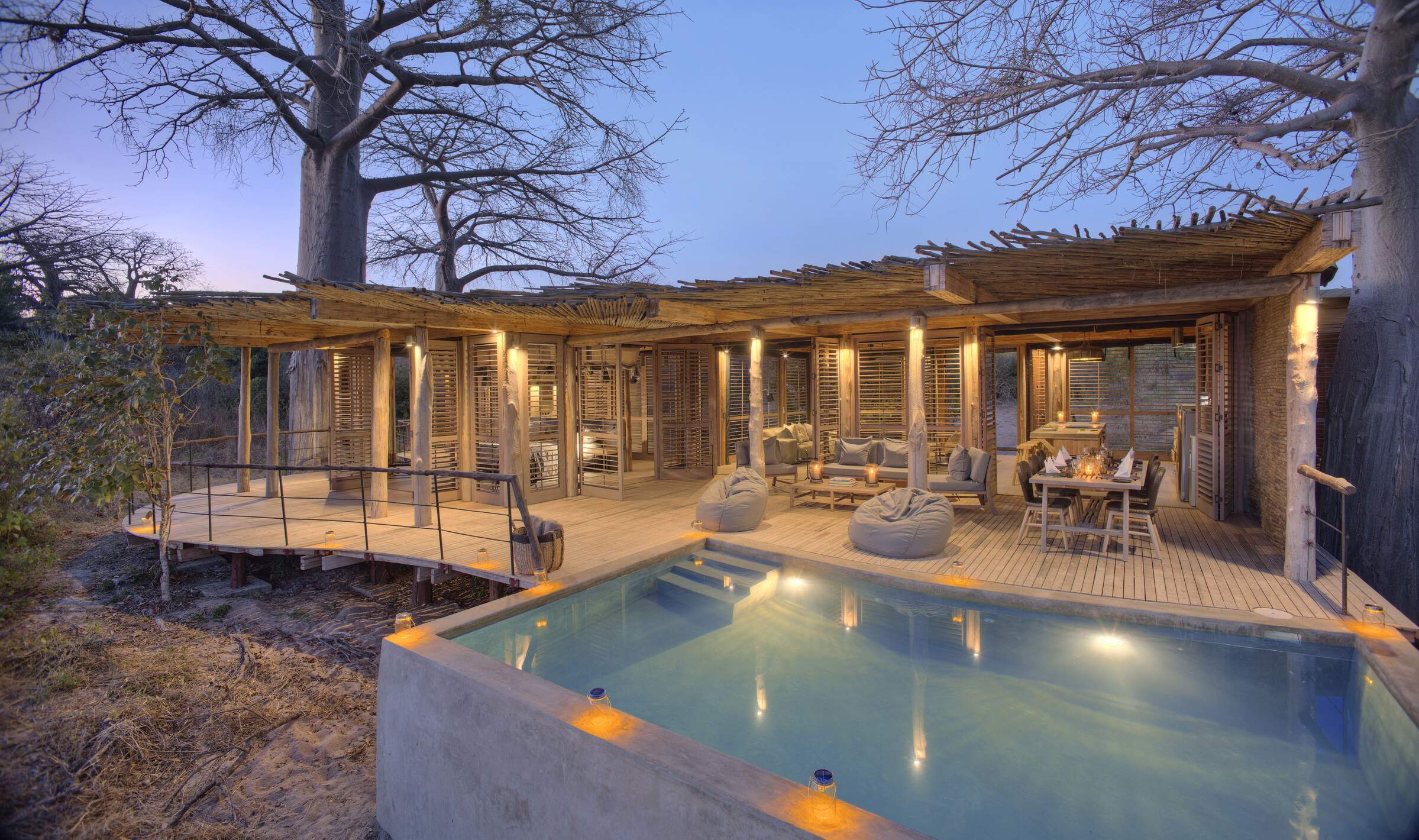
Jabali Private House
Jabali Private House in Ruaha National Park provides luxurious accommodation for private groups booked on an exclusive basis.
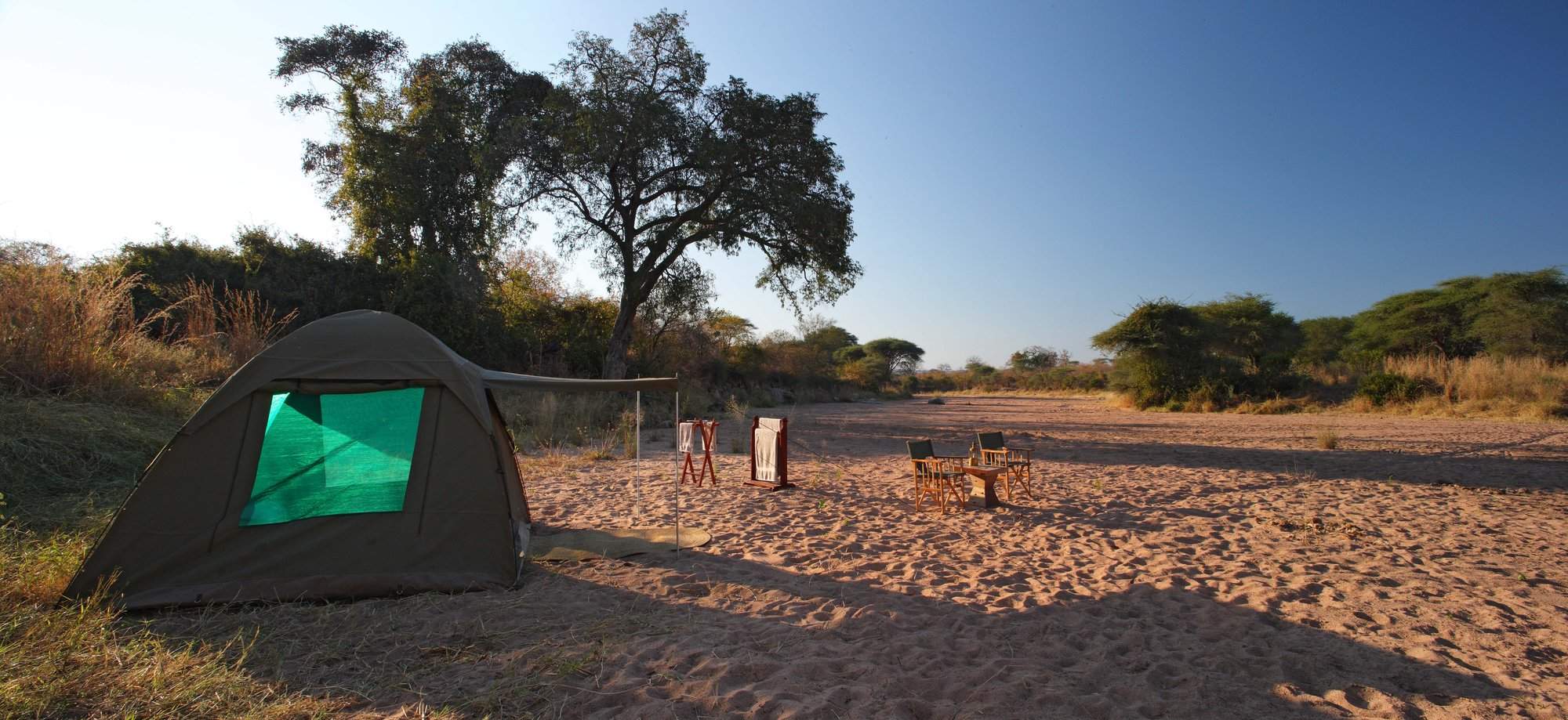
Jongomero Walking
Fly-camping and walking safaris from Jongomero Camp give you the chance to explore remote safari areas in Ruaha National Park.
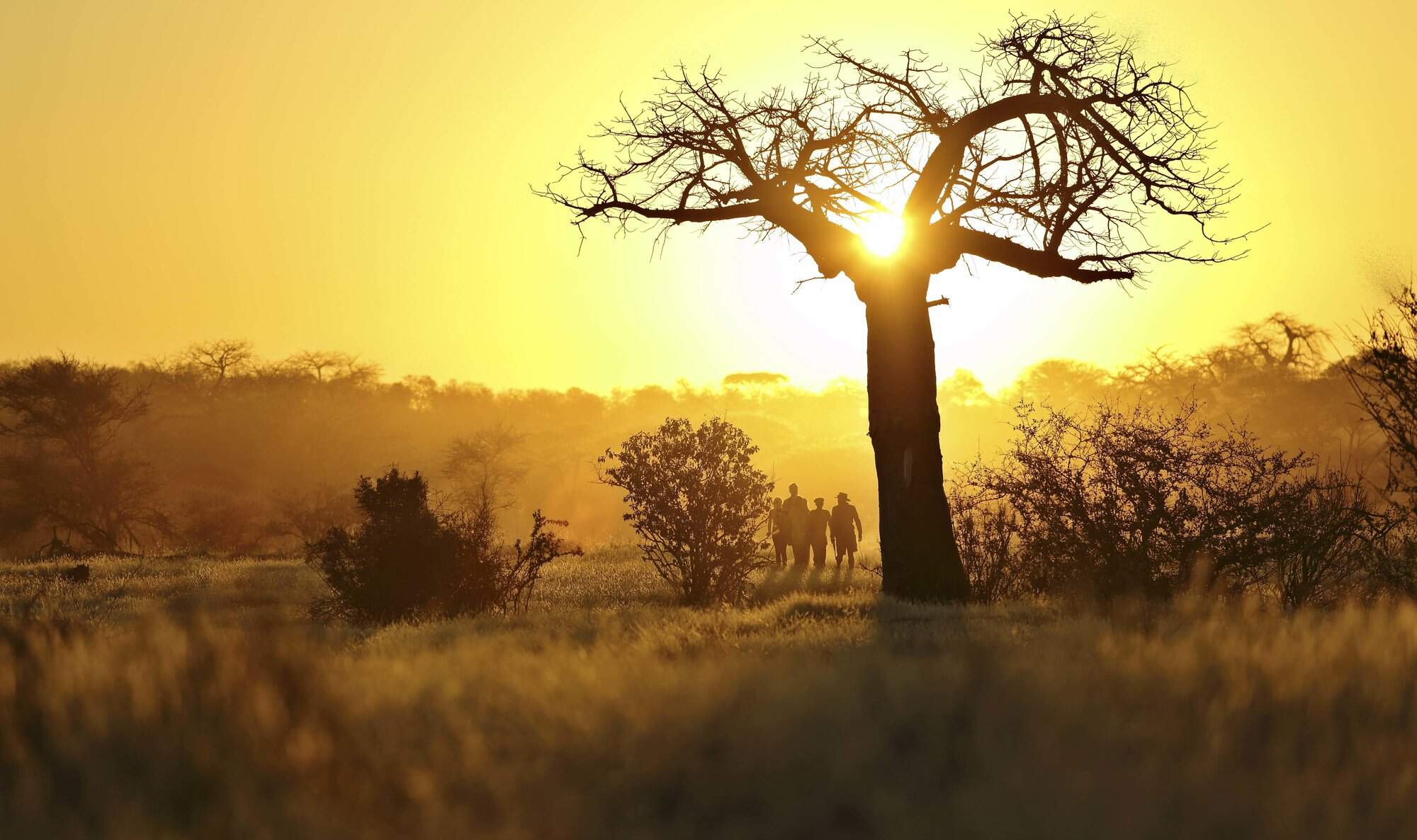
Asanja Ruaha
Asanja Ruaha Ndembo is a smart new safari lodge in a picturesque setting overlooking the Great Ruaha River.
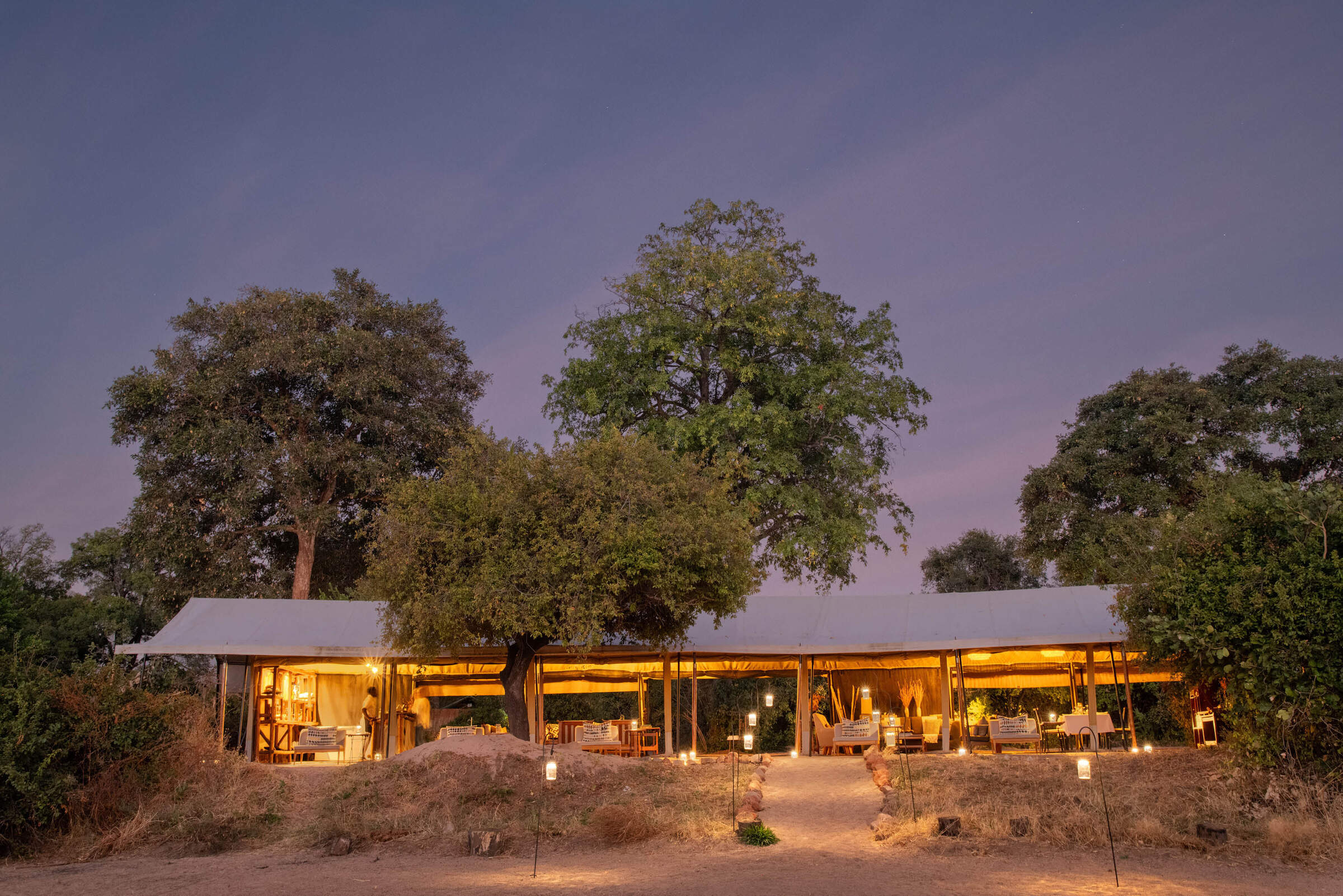
When to go to Ruaha National Park
Our month by month guide: What it's like to visit Mwagusi Safari Camp in Ruaha National Park
Jan
Feb
Mar
Apr
May
Jun
Jul
Aug
Sep
Oct
Nov
Dec
Ruaha National Park in January
In January, clear skies and sunshine prevail, with temperatures rising and rain showers not uncommon. This period is excellent for birdwatching, as resident birds enter breeding plumage and migrant species arrive. The Usangu wetlands teem with avian activity. After the end of the festive period, January offers great value and quiet park conditions. However, wildlife may be more dispersed in areas like Mwagusi.
The baobab-dotted landscape provides stunning backdrops for photography. Visitors can enjoy game drives along the river, spotting elephants, buffaloes, and various antelope species. Walking safaris offer intimate encounters with smaller creatures and flora.
- Variable weather: dry, cloudy, or rainy
- Occasional thunderstorms may occur
- Good time for birding, many migrant species
- Wildlife dispersed due to available water
Our view
A good time to visit, with pros & cons
Weather in January
Ruaha National Park in February
February in Ruaha is one of the hottest months, with temperatures reaching around 33°C/91°F. The short dry season continues, making it an excellent time for wildlife viewing around the Great Ruaha River and remaining water sources. There are few tourists in the park at this time, and lodge rates are lower.
This month is particularly rewarding for birdlife as northern hemisphere migrants join resident species in the Usangu wetlands and along the river banks. The Mwagusi area is prime for lion spotting, while the rolling hills and rocky escarpments offer breathtaking vistas. Visitors can enjoy bush picnics and guided walks to explore the diverse flora.
- Hot and dry weather in Ruaha
- Wildlife congregating around water sources
- Excellent game viewing opportunities
- Lush and green landscapes after rains
- Fewer tourists, more intimate safari experience
Our view
A very good time to visit
Weather in February
Ruaha National Park in March
The Great Ruaha River swells, attracting diverse wildlife. This is an excellent time to visit as the vegetation becomes lush and vibrant. Cat sightings may be infrequent, but birdwatching remains exceptional, especially around the Usangu wetlands.
Many camps begin to wind down operations, but those remaining open offer great value. The rains transform the landscape, with baobabs and acacias in full bloom. Walking safaris may be limited, but game drives can reveal unique sightings of animals in their rain-season behaviours.
- Hot with building humidity before rains
- Wildlife viewing variable
- Park is quiet with lower visitor numbers
- Good time for birding in Ruaha
- Green landscapes offer scenic photography
Our view
A good time to visit, with pros & cons
Weather in March
Ruaha National Park in April
April is the wettest month in Ruaha, with an average of 250mm of rain. The park's ecosystem thrives, with the Great Ruaha River and surrounding areas lush and teeming with life. This period is excellent for observing smaller creatures, insects, and birds.
Many of the lodges in the park will close, but a handful remain open, offering significant discounts. Visitor numbers are very low, but this is an ideal time for photographers capturing the park's verdant beauty and for those interested in the park's diverse flora. While big game viewing becomes more challenging due to dense vegetation, patient observers can be rewarded with unique sightings.
- Heavy rains expected, dramatic thunderstorms
- Some camps may close due to accessibility
- Lush vegetation, wildlife more dispersed
- Lowest visitor numbers and rates all year
- Challenging time for game viewing
Our view
This is not a great time to visit
Weather in April
Ruaha National Park in May
As May progresses in Ruaha, temperatures start to drop slightly, and the rains begin to clear. The Great Ruaha River and other water sources remain full, supporting a wide range of wildlife. This transitional period offers a unique blend of lush landscapes and improving game viewing conditions. Herbivores begin to congregate as the land starts to dry.
Visitor numbers and lodge rates remain low, providing excellent value. This is an excellent time to explore the park's diverse habitats, from riverine areas to the baobab-studded savannas.
- Rains continue, creating dramatic skies
- Quiet period with few other tourists
- Lush green landscapes throughout the park
- Wildlife dispersed, fewer sightings
- Lower prices make safaris more affordable
Our view
This is not a great time to visit
Weather in May
Ruaha National Park in June
June marks the end of the rainy season in Ruaha, with wildlife starting to concentrate around perennial water sources like the Great Ruaha River. The landscape begins to dry, but many areas remain green. This is the start of the shoulder season, with camps reopening and offering good value.
Game viewing improves as the month progresses, particularly around the river and remaining water holes. The Mwagusi area becomes excellent for predator sightings. Walking safaris and fly-camping options increase as the terrain dries. The Usangu wetlands continue to offer excellent birdwatching opportunities. Visitors can enjoy spectacular sunsets over the baobab-dotted landscape.
- Variable weather: dry, cloudy, or some rain
- Wildlife starting to gather near water sources
- Park becoming less green, easier viewing
- Good value with shoulder season prices
- Moderate visitor numbers
Our view
A good time to visit, with pros & cons
Weather in June
Ruaha National Park in July
July in Ruaha National Park marks the beginning of the peak season. With no rainfall expected and pleasant daytime temperatures, it's an ideal time for safaris. The Great Ruaha River becomes a lifeline for wildlife, offering excellent game viewing opportunities. As the park dries, animals congregate in fewer areas, making sightings more frequent and spectacular. The Mwagusi area is particularly good for lion sightings. There is also increased chances of seeing cheetah and wild dog.
Walking safaris are at their best, allowing close encounters with the park's flora and smaller fauna. The rolling hills and rocky escarpments provide stunning backdrops for photography. Birdwatching remains excellent, especially around the remaining water sources. Night drives offer chances to see nocturnal species. Seasonal balloon safaris become available.
- Dry and warm days, cool mornings/evenings
- Excellent wildlife viewing as water diminishes
- Popular time with higher visitor numbers
- Peak season prices due to prime conditions
- Seasonal balloon safaris commence
Our view
Fantastic: the very best time to visit
Weather in July
Ruaha National Park in August
August is the heart of the dry season in Ruaha, characterised by clear skies and sunny weather. Nighttime temperatures can be cool, so layered clothing is recommended for early morning game drives. The Great Ruaha River and other permanent water sources attract large concentrations of wildlife, offering excellent viewing opportunities. The Mwagusi and Usangu areas are particularly rewarding for game viewing, and this is traditionally a good time of year for cat sightings.
The iconic baobab trees stand out starkly against the dry landscape. Walking safaris and bush picnics are at their best.
- Dry weather, cool mornings and evenings
- Superb wildlife viewing around water sources
- Busy season with many visitors in Ruaha
- Book early as camps fill up quickly
- Great time for predator sightings
Our view
Fantastic: the very best time to visit
Weather in August
Ruaha National Park in September
September is an excellent month to visit Ruaha. As the dry season peaks, wildlife becomes increasingly concentrated around remaining water sources, particularly the Great Ruaha River. This leads to high densities of animals and frequent predator sightings, especially in the Mwagusi area. The landscape is starkly beautiful, with baobabs and dry savanna dominating.
This is an ideal time for walking safaris and night drives. Birdwatching remains rewarding, especially around the shrinking water bodies. The Usangu wetlands, though diminished, still attract diverse birdlife.
- Fantastic wildlife viewing opportunities
- Parks slightly less busy than peak months
- Very dry conditions, sparse vegetation
- Cool mornings, warm days in Ruaha
- High season prices still in effect
Our view
Fantastic: the very best time to visit
Weather in September
Ruaha National Park in October
October in Ruaha marks the end of the dry season, offering some of the best wildlife viewing opportunities. The Great Ruaha River and remaining water holes attract large concentrations of animals, making for spectacular game drives. Elephant sightings are particularly frequent during this time.
The landscape is at its driest, creating a striking backdrop for photography, though it can be dusty. Predator sightings, especially of lions and leopards, are common in areas like Mwagusi. Walking safaris provide intimate wildlife encounters. Birdwatching remains excellent as migratory species begin to arrive. There's a chance of early rains towards the end of the month, bringing relief to the parched landscape. Balloon safaris operate until the end of October.
- Mostly dry with comfortable temperatures
- Excellent game viewing, especially around rivers
- Landscape can appear barren and dusty
- Lower visitor numbers than earlier months
- Chance of dramatic storms towards month-end
Our view
A very good time to visit
Weather in October
Ruaha National Park in November
November usually sees the start of the rains in Ruaha, though the timing varies yearly. Game viewing is very dependent on the rains. The landscape begins to transform, with new growth appearing. This is an excellent time for birdwatching as migratory species arrive in the Usangu wetlands and other areas. Most camps remain open, offering shoulder season rates and good value.
Early November can be particularly rewarding, combining late dry season wildlife concentrations with the first rains. The large buffalo herds tend to move up onto the escarpment. Walking safaris may be possible depending on conditions. The baobab trees start to leaf, creating a beautiful contrast with the dry landscape.
- Variable weather: dry, cloudy, or rainy
- Park relatively quiet, lower-end prices
- Good wildlife sightings before rains disperse
- Some camps may close for maintenance
- Unpredictable conditions
Our view
A good time to visit, with pros & cons
Weather in November
Ruaha National Park in December
December is a quiet time to visit the park. Game viewing is good, with animals still relatively concentrated. The landscape is a mix of dry areas and new growth, creating diverse habitats. Birdwatching is excellent, with both resident and migratory species present in abundance, especially in the Usangu wetlands. The festive period can be busy, so early booking is essential.
Outside the holiday season, December offers great value with shoulder season rates. Temperatures are pleasant, averaging around 27°C/81°F, with occasional thunderstorms adding drama to the landscape. Walking safaris (weather permitting) and night drives provide varied wildlife experiences.
- Variable weather with possible thunderstorms
- Good game viewing in Ruaha's core areas
- Very quiet early, becoming busier later
- Prices low early, rising significantly later
- Green vegetation starting to return
Our view
A good time to visit, with pros & cons
Weather in December

Looking for inspiration on where to travel next?
Visit our trip chooser to explore your options and find inspiration for your perfect African adventure
Inspire me